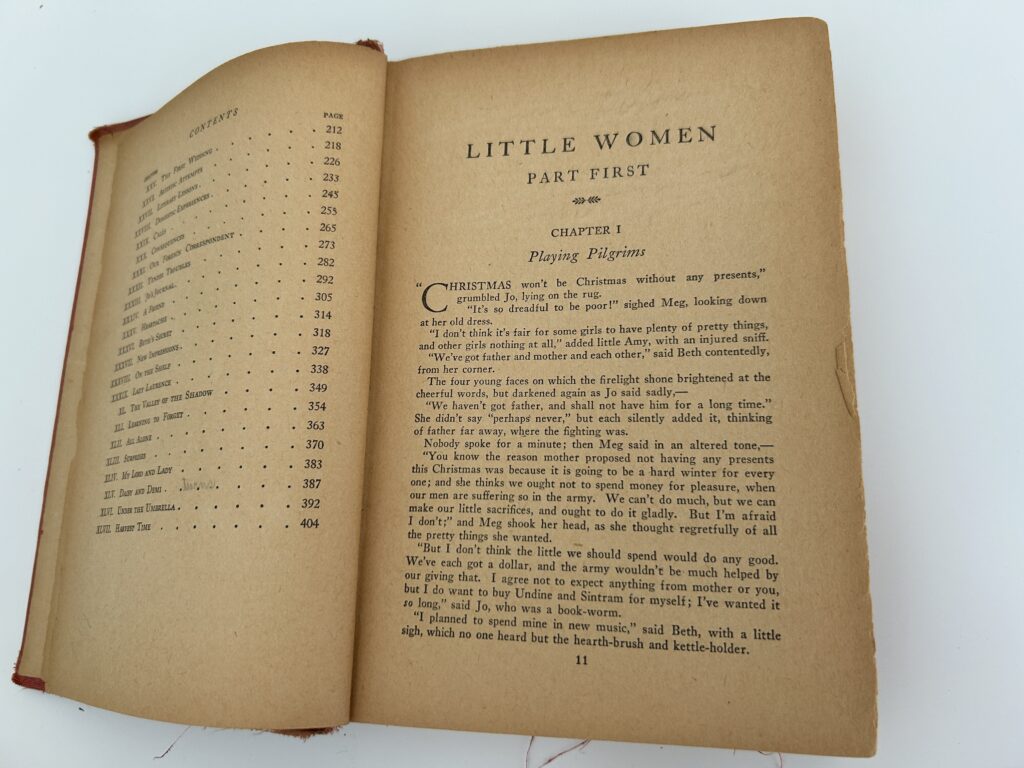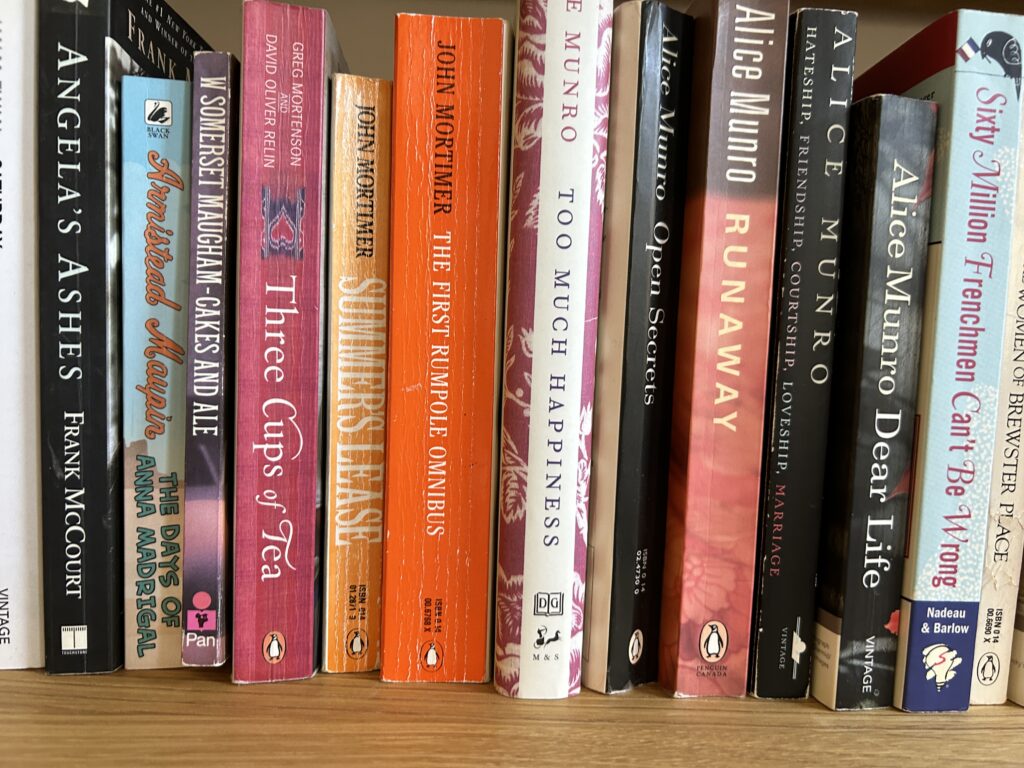- Feb 3, 2024
- LitBits
- 0
New blog post by Mel L – discussions in this thread, please
---
“Christmas won’t be Christmas without any presents,” grumbled Jo, lying on the rug.
That opening line is indelibly inked in my memory.
Other fictional characters captured my childhood imagination before the March sisters: Anne of Green Gables, Black Beauty, Big Red. All great stories for children. But ‘Little Women’, Louisa May Alcott’s coming-of-age story set against the backdrop of the American civil war, was the first book that brought me into my adult reading self.

Jo was my hero. A tomboy with a temper, and no time for womanly pastimes, she loved books and bravely broke the social barriers of the time. How I wished I could be as fearless as Jo!
I’ve always been a reader; there’s never been a time in my life without a book (or three) on the go. I read slowly, exclusively in print. Screens are work. The part of my brain that dips into a story and stay there can only be engaged by immersing myself in the slightly sour smell of ink and the tactile experience of turning pages. Reading for me is ritual, pleasure, escape.
But unlike those early novels whose lines have stayed with me, the books I read these days tend to blur together. So much so that I now keep a list.
I think this has less to do with my ageing brain than the quality of my reading. An attention gap that means I can read an entire novel and later pick up again without remembering it – until several chapters in, something seems vaguely familiar, and I realize I’ve been there, read that.

Perhaps it is also because few books create unique character voices that stay with us like Jo did with me. Original misfits and unlikely heroes, like some of my favourites: Ignatius J Reilly (A Confederacy of Dunces), Holden Caulfield (Catcher in the Rye), Hazel and Fiver (Watership Down), Daisy Goodwill (The Stone Diaries), Sethe (Beloved). And a recent exception: Ove in ‘A Man Called Ove’.
And because we, as writers, read to hone our craft, edit, and give feedback to others. When I read these days, it is often on two levels, one part of my brain absorbing the story as a reader, the other analyzing it as a writer. This kind of reading is a lot more demanding, but it can also be hugely rewarding.
Whether or not you write character-driven stories or world-building fantasy, writing is an iterative process. Reading, in all its forms, is an essential part of it.
How do you read? Are you able to separate your reader brain from your writer brain?
---
By @Mel L
Get the discussion going – post your thoughts & comments in the thread below…
---
“Christmas won’t be Christmas without any presents,” grumbled Jo, lying on the rug.
That opening line is indelibly inked in my memory.
Other fictional characters captured my childhood imagination before the March sisters: Anne of Green Gables, Black Beauty, Big Red. All great stories for children. But ‘Little Women’, Louisa May Alcott’s coming-of-age story set against the backdrop of the American civil war, was the first book that brought me into my adult reading self.

Jo was my hero. A tomboy with a temper, and no time for womanly pastimes, she loved books and bravely broke the social barriers of the time. How I wished I could be as fearless as Jo!
I’ve always been a reader; there’s never been a time in my life without a book (or three) on the go. I read slowly, exclusively in print. Screens are work. The part of my brain that dips into a story and stay there can only be engaged by immersing myself in the slightly sour smell of ink and the tactile experience of turning pages. Reading for me is ritual, pleasure, escape.
But unlike those early novels whose lines have stayed with me, the books I read these days tend to blur together. So much so that I now keep a list.
I think this has less to do with my ageing brain than the quality of my reading. An attention gap that means I can read an entire novel and later pick up again without remembering it – until several chapters in, something seems vaguely familiar, and I realize I’ve been there, read that.

Perhaps it is also because few books create unique character voices that stay with us like Jo did with me. Original misfits and unlikely heroes, like some of my favourites: Ignatius J Reilly (A Confederacy of Dunces), Holden Caulfield (Catcher in the Rye), Hazel and Fiver (Watership Down), Daisy Goodwill (The Stone Diaries), Sethe (Beloved). And a recent exception: Ove in ‘A Man Called Ove’.
And because we, as writers, read to hone our craft, edit, and give feedback to others. When I read these days, it is often on two levels, one part of my brain absorbing the story as a reader, the other analyzing it as a writer. This kind of reading is a lot more demanding, but it can also be hugely rewarding.
Whether or not you write character-driven stories or world-building fantasy, writing is an iterative process. Reading, in all its forms, is an essential part of it.
How do you read? Are you able to separate your reader brain from your writer brain?
---
By @Mel L
Get the discussion going – post your thoughts & comments in the thread below…
